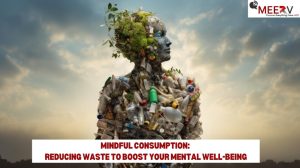Drug Addiction: What You Need To Know

When your thoughts feel like someone else’s, you start to feel like you’re in prison and you’re trapped by these thoughts. One thing that you might indulge in is the use of alcohol and drugs. Unfortunately, excessive drug use can lead to addiction if it’s not taken care of in time. Addiction means dealing with two problems- addiction and mental health (which you were trying to curb via the use of drugs).
Nonetheless, you may have to turn to medication for recovery purposes. However, this always causes an addict to relapse. Be optimistic and consider other forms of recovery. Therapy is an excellent way to help you recover from addiction and mental health problems.
What is Drug Addiction?
Drug addiction is when someone uses a substance, like medicine or drugs, so much that their brain and body start depending on it. It’s not easy for them to stop even if it’s causing problems. They might want to quit, but their brain keeps telling them to use the substance. This can affect their health, their relationships, and their life in general.
It’s important to remember that addiction is a serious challenge, and many people need help to overcome it. Just like you might need help to stop eating too much of your favorite candy, people with addiction need support, understanding, and often treatment to get better.
A rehab center where you can seek therapy that will help you quit your addiction. The following are points you need to know about recovery from addiction.
How Drug Addiction Takes Hold
When it comes to drug addiction, the journey often begins innocently. Curiosity, peer pressure, or even seeking relief from stress can lead individuals down a dangerous path. The brain’s reward system gets hijacked by the allure of addictive substances, leading to a cycle of repeated use that’s hard to break.
Recognizing the Warning Signs of Drug Addiction
Identifying the warning signs of drug addiction is crucial for early intervention. These signs can manifest both physically and behaviorally:
- Physical Signs:
- Drastic weight changes
- Bloodshot eyes
- Poor hygiene and grooming
- Sudden deterioration of physical health
- Behavioral Signs:
- Isolation from friends and family
- Neglecting responsibilities
- Sudden financial struggles
- Engaging in risky behaviors
The Unraveling Effects of Drug Addiction
- Health Decline: Prolonged drug use can damage vital organs and lead to chronic health issues.
- Relationship Strain: Addiction strains relationships, leading to mistrust and communication breakdowns.
- Legal Issues: Drug-related activities can lead to legal trouble, resulting in a criminal record.
- Financial Instability: Supporting a drug habit can drain finances, leading to debt and instability.
- Emotional Toll: Individuals often grapple with guilt, shame, and mental health disorders.
Explore Drug Addiction treatments
You can consider withdrawing from drug use altogether and deal with the side effects of sudden withdrawal. Your doctor may recommend medication that should be taken as per their instructions, for it to work effectively; otherwise, you will bounce back to addiction.
If you want to recover effectively, consider seeking therapy sessions. In cases where the addiction is excessive, you may require a rehabilitation center or a recovery facility to help you out.
Seek a support system
The reason you’re going back to drug use is that you lack a sound support system. However, to recover, you need someone to guide, listen, and encourage you. Having a positive support group greatly influences your recovery.
Why should you seek therapy?
Through therapy, you’ll identify the reasons why you indulge in drugs. Most therapists are insight-oriented. They can help you identify your problems by diving deep into your history. However, you must be ready to step out of your comfort zone because the therapist will persuade you to answer some challenging questions about yourself. Regardless, if you remain open-minded, you’ll recover from drug addiction quickly.
A therapist has dealt with many patients who have suffered addiction and substance abuse. So, they will take you through the healing process because they possess the skills and knowledge to do so. Besides, there is no personal relationship, so they will remain objective and listen to all your problems.
Meditation
Meditation serves as a transformative tool in the journey of overcoming drug addiction. In the midst of the challenging obstacle that addiction presents, meditation acts as a guiding light, offering strength, clarity, and mindfulness. The tumultuous thoughts and cravings that often accompany addiction can find solace in the practice of meditation. By focusing on the rhythm of one’s breath and relinquishing the grip of racing thoughts, a sense of calmness gradually envelops the mind.
One of the most remarkable benefits of meditation in drug addiction is its ability to aid in managing cravings.
Rehab Center
Rehabilitation centers, often referred to as rehab centers, play a crucial role in helping individuals overcome the challenges of drug addiction. Think of a rehab center as a supportive haven, designed to guide and empower individuals on their journey to recovery. These centers provide a structured environment and a range of specialized treatments that address both the physical and psychological aspects of addiction.
When someone enters a rehab center, they are embarking on a path of transformation. The center becomes a safe space where they can break free from the cycle of addiction and acquire the tools needed to rebuild their lives.
Related : How to Choose an Alcohol Rehab Facility
The Most Addictive Drugs
Certain drugs have a higher potential for addiction due to their impact on the brain’s reward system:
- Opioids: Prescription painkillers and heroin are notorious for their highly addictive nature.
- Cocaine: This stimulant can quickly lead to dependence and addiction.
- Methamphetamine: Commonly known as meth, it causes a rapid release of dopamine, leading to intense cravings.
Conclusion
Addiction is a mental health issue, and it can be controlled when you have the right state of mind and the right kind of support. Since you’re in control of your life, you have to choose methods that can help you recover from drug abuse.






